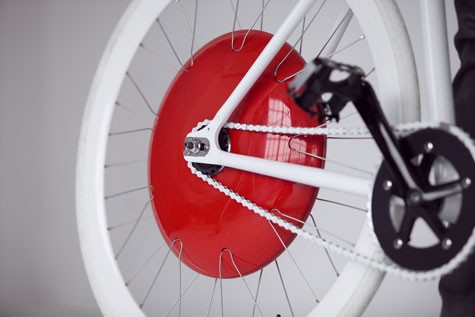
Copenhagen’s Summit of Mayors has give the thumbs up to a new high-tech electrical bicycle wheel that, when in motion, can monitor the bike’s speed, direction and distance travelled, as well as collect data on air pollution and even the proximity of the rider’s friends.
The wheel has an oversized hub that stores energy every time the rider brakes, and then gives that power back to provide a boost when the rider is going uphill or needs a burst of speed in traffic.
Sydney Lord Mayor Clover Moore said it was an "exciting development that would encourage increased take-up of cycling”.
Professor Carlo Ratti, director of the MIT Senseable City Lab said: "The bike wheel contains everything you need, so that no sensors or additional electronics need to be added to the frame; an existing bike can be retrofitted in the blink of an eye.
"In a sense, you power it by foot: when you pedal forward the motor supplements your torque; when you pedal backwards to slow down, the motor starts regenerating electric energy while reducing your speed."
Mass production of the hybrid bike is expected within a year.
Moore told an assembly of international mayors in Copenhagen overnight that it is “imperative” to engage with citizens if cities were to succeed in helping reduce greenhouse gas emissions.
She was one of several mayors who presented case studies to the Summit on future urban challenges and solutions.
"Our communities expect their political representatives to show real leadership and, when engaged, they will support and participate in bold action to tackle climate change," Moore said.
In a communique released prior to the start of the Summit round table, the 80 mayors from world cities said they urged national leaders involved in COP15 to embrace the chance and to seal an ambitious and empowering deal.
"Our cities represent more than half the world's population. Up to 75 per cent of the world's greenhouse gas emissions come from urban areas. We therefore must take and are taking responsibility for fighting climate change.
"Our message to national governments is simple: agree an ambitious targets and start reducing now - and be confident that if cities are engaged, empowered and given the right resources we will deliver on our commitments."





